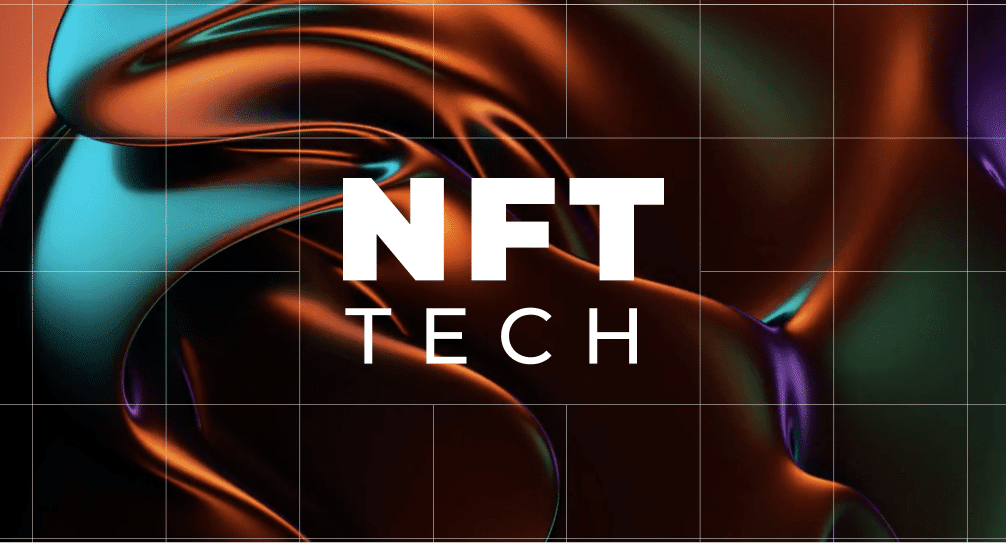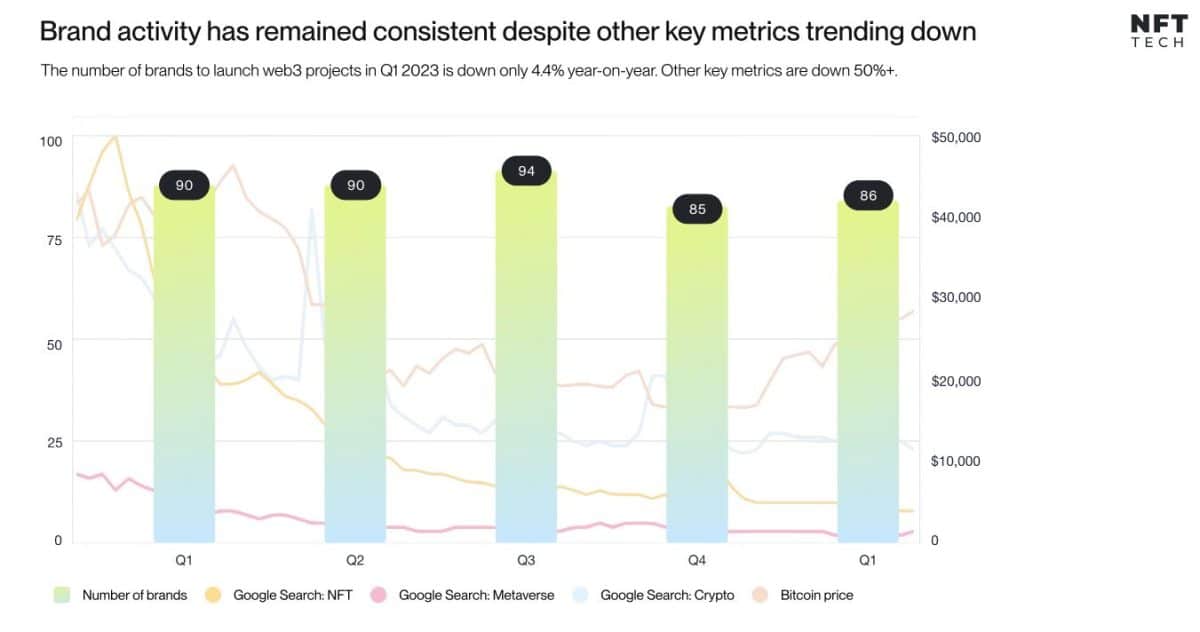Major Web2 businesses are entering Web3 in a huge way. NFT Tech, a Cannes Award-winning technology and design studio, recently published an in-depth study on how 314 of some of the world’s biggest companies are using blockchain and NFT technology to develop new business models. What did NFT Tech’s research reveal?
 Web2 brands are invading the digital world of Web3 Image Credit: NFT Tech How are Web2 businesses entering Web3?
Web2 brands are invading the digital world of Web3 Image Credit: NFT Tech How are Web2 businesses entering Web3?
Web2 brands have primarily focused on NFTs to help transition into Web3. By rewarding customers with NFTs, brands have discovered a new way to improve customer loyalty and engagement. This trend, while still in its early stages, has already revolutionized the consumer/brand relationship.
Starbucks is a great example of a non-crypto-native company making the digital leap. The Seattle-based coffee company launched a customer loyalty program called Starbucks Odyssey last December. Starbucks fans could earn “Stamps” by completing daily tasks such as ordering specific items at Starbucks locations, completing online quizzes, etc. These stamps could then be used to get free drinks, discounted merchandise, and other perks. The program has been an overwhelming success and provided a fantastic roadmap for other companies looking to use NFTs to reward customers.
Nike is another Web2 company making waves in Web3, and according to NFT Tech, had the most creative entrance to the space. The famous apparel brand purchased RTFKT, a UK-based design studio on the cutting edge of phygital fashion and digital wearables. By acquiring RTFKT, Nike was able to create an immediate presence in Web3. Soon after the acquisition, Nike and RTFKT announced a partnership with famous fashion designer Takashi Murakami to create the CloneX NFT collection. Since then, Nike has continued to use RTFKT to release limited-edition Nike digital apparel and footwear.
 RTFKT had the most creative entry into Web3 of all Web2 brands, according to NFT Tech Image Credit: RTFKT Why are companies using NFTs over other crypto assets?
RTFKT had the most creative entry into Web3 of all Web2 brands, according to NFT Tech Image Credit: RTFKT Why are companies using NFTs over other crypto assets?
NFT Tech‘s research indicates that brands prefer NFT for three main reasons. First, there remains a great deal of uncertainty when it comes to cryptocurrency regulation in the United States. The SEC has refused to provide clear guidelines on how different tokens should be classified. As a result, many large companies are nervous about inadvertently selling illegal securities.
The size of the companies involved also plays a factor, NFT Tech asserts. A whopping 92% of the companies surveyed have market caps over $1b. NFT Tech believes there is a correlation between risk appetite and company size– the bigger the company, the more risk-averse they become. Given the previously mentioned risk surrounding cryptocurrencies, it’s not surprising that the majority of companies have shied away from launching their own altcoins.
Finally, NFT Tech views the playful nature of NFTs as a selling point. Unlike altcoins, brands can imbue NFTs with their own branding using artwork, company logos, etc. This difference is more user-friendly and taps into our natural tendency to collect things.
Will more Web2 companies enter Web3?
NFT Tech sees a bright future for legacy businesses in Web3, pointing to the consistent number of brands launching projects as evidence. While metrics such as Google search data for NFTs/crypto and the price of Bitcoin itself fell more than 50% in 2022, the number of brands entering the space only dropped 4.4%.
 Companies are continuing to launch Web3 projects even during a bear market for NFTs and crypto Image Credit: NFT Tech
Companies are continuing to launch Web3 projects even during a bear market for NFTs and crypto Image Credit: NFT Tech
The world of big business is competitive. Web3 is one of the greatest opportunities in modern history for innovative companies to develop new income streams and be at the forefront of a massively disruptive technology. NFT Tech’s research shows that many of the largest companies in Web2 are up for the challenge.
The post Which Web2 Brands are Conducting Business in Web3? appeared first on NFT Evening.

